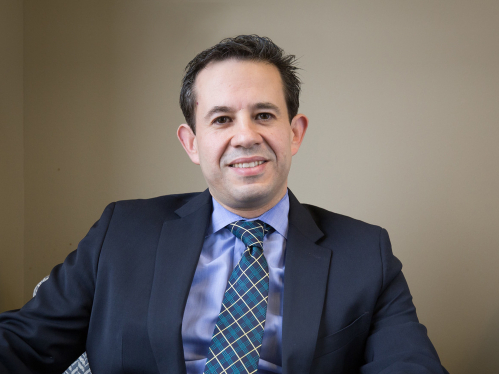
Reflections on Pride
Members of the LGBTQA community and their allies from across Rutgers share their thoughts on what pride means to them.

In the more than five decades since the Stonewall uprising in New York City gave birth to the modern LGBTQA rights movement, there has been transformational progress and momentous causes for celebration including the legalization of gay marriage and extension of workplace protections under the Civil Rights Act.
But the rights of LGBTQA individuals, particularly transgender men and women, continue to be under assault through legislation that bans participation in sports and prohibits transgender men and women from using restrooms that match their gender identity.
In honor of Pride Month, we asked members of the LGBTQA community at Rutgers and their allies to share their thoughts on progress made, the continuing challenges they face and what Pride means to them. Here are their reflections.
An Answer for the Backlash Against the LGBTQA Community
Kimberly Mutcherson
Dean and Professor of Law, Rutgers Law School
She/her/hers
In June 2020, the U.S. Supreme Court announced its decision in Bostock v. Clayton County. In that case, the Court determined that Title VII, one of the most important federal civil rights statutes, protects gay and transgender individuals from discrimination in their workplaces. This was a huge victory for the LGBTQA community, especially given that many states do not have state-level workplace protections for LGBTQA employees. That the decision was handed down during Pride month, and during a year filled with much bad news, made the victory that much sweeter.
A year later, however, a wave of anti-trans bills in state legislatures is a painful reminder that progress requires vigilance to be maintained. Since the start of 2021, dozens of bills have been introduced in state legislatures that would, if passed, negatively impact the lives of trans people, especially trans youth. Some of those bills are so-called bathroom bills that regulate which bathrooms transgender people can use – an incredibly odd use of legislative time and resources. One of the most bizarre new laws comes from Tennessee, which now requires businesses that do not actively prevent transgender people from using the bathroom that matches their gender identity to post signs warning patrons that a transgender person may be using the same bathroom that they are using. Bathroom bills are an affront, but even more distressing are attempts to ban transgender youth from playing sports or, even more egregiously, prevent parents from consenting to gender-affirming care for their transgender children.
As we celebrate Pride this year, we would do well to remember that before Pride was a party, it was a political act – one that owed its origins in no small part to the actions and activism of trans women of color. As we watch the backlash that demonizes and threatens the mental health and well-being of many members of the LGBTQA community, I hope that our month-long celebration will be followed by political action to show support for those who are so often the most vulnerable members of our communities. Be loud, be proud, and demand the better world that we all deserve. Happy Pride!
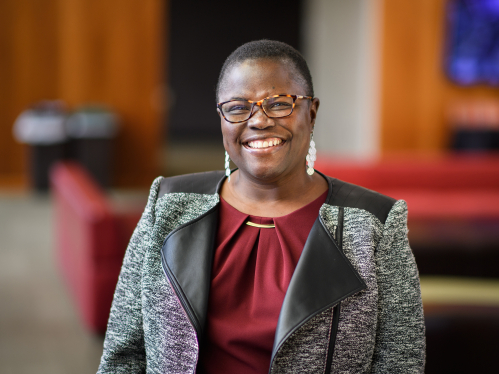
Coming Out, Holding Space
Carlos Ulises Decena
Associate Professor and Chair, Latino and Caribbean Studies
Associate Professor, Women’s, Gender and Sexuality Studies, Rutgers University-New Brunswick
He/him/his
I remember coming out as a battle cry, particularly as it concerned my Black working-class Dominican immigrant family. I had already been “out” to myself for years, enjoying the distance of a long train commute from my parents’ home in North Philadelphia, and feeling smug about how loud and proud a gay man I was on campus. When my telenovela outing happened, I wasted no time and began a shock therapy version of gay pride at mami’s house, ogling openly and brazenly over the increasingly bare torsos of men on Univisión during the afternoon shows. My mother, a jewel of brevity and a master of silence, soon began to enjoy watching my father and two younger brothers be rattled by realizing they were no longer the only ones making inappropriate comments about bodies on TV. This was the late 1990s, and I would just not have my sissyhood any other way, and everyone adjusted.
The comforts of upward mobility and a secure job in the professoriate have often tricked my mind into thinking that it is no longer necessary to come out, and I have spent a lot of time thinking about how and when it is useful to do so. Perhaps the impulse of early gay liberation resides not in coming out as a moment of revolution in the sense in which it was so in the 1960s, but something extraordinary happens to the quality of the air I and my students breathe together when coming out happens. After discussing openly the “cute men” at the university I attended after transferring during my second year in college before a plenary session with over 100 students in the Educational Opportunity Fund, one of the counselors came and thanked me for my comments. I feared that some of what I said may have appeared inappropriate, though I was trying to be true to who I was then—a way to connect to the anonymous yearning to be in that room. “You know you did a lot with what you said,” she pointed out. We smiled.
Coming out is not always easy or comfortable, or equally accessible to all of us, but it is worth doing when possible for the young person in the space, so they know they are not alone in their quest for other ways of being, for other ways of doing, and for other ways of living. I feel you. We feel you, in all of your inchoate fierceness. And our hearts are big enough to make space for all of you to be, to become, to lust and to love. For people who look and who come from places like where I came from, this is no small thing.
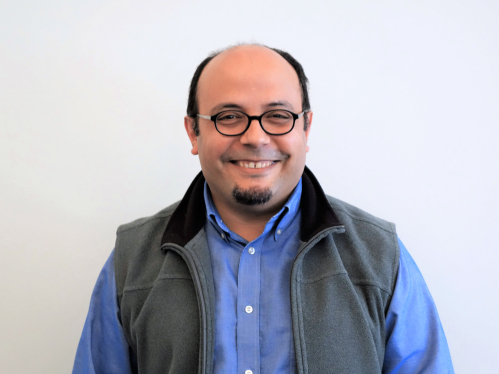
Retaining Community for Students During COVID-19
Shaan Williams, Class of 2021
Recipient of the Lionel Cuffie Award for Activism and Excellence
She/her/xe/xem
It is absolutely vital for the LGBTQA community to have access to supportive groups, especially those further marginalized due to their race, disability, or economic class. However, the social distancing measures enacted to keep people safe during COVID-19 put up a huge barrier to sustaining those communities in-person.
Leaving my friends and returning home was difficult for me, as my friends are a huge source of affirmation. Not getting to see them in-person brought back feelings of loneliness I had not felt since middle school. Losing my grandfather to COVID-19 in April also compounded a lot of negative feelings, so getting through schoolwork became an ordeal. I became very used to asking for deadline extensions due to mental health challenges.
What did help me get through it all was virtual community. The Center for Social Justice Education and LGBT Communities (SJE) was a huge force in making sure LGBTQA Rutgers students still had support throughout the pandemic. Most of the student organizations they host still had weekly meetings. Through Queer Caucus, the student governing body of all of the organizations, we were able to host a town hall to hear from the Rutgers community about the kind of initiatives we could advance to further improve campus climate.
Thanks to that community-building experience, I was able to finish all of my schoolwork and proudly able to graduate this May with a psychology degree. With Rutgers slated to open up further this fall semester, I hope that incoming LGBTQA students will realize the importance of community, and that some of the SJE-run organizations that did go dormant during COVID-19 will again be filled with bright new faces.
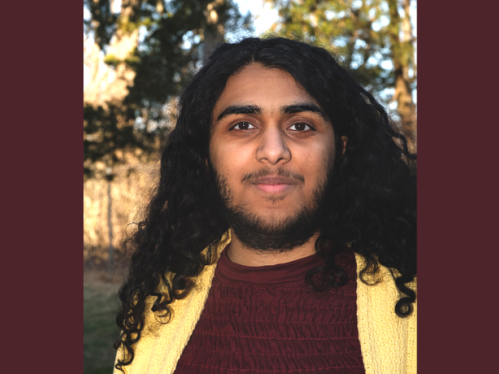



As we watch the backlash that demonizes and threatens the mental health and well-being of many members of the LGBTQ community, I hope that our month-long celebration will be followed by political action to show support for those who are so often the most vulnerable members of our communities.
Kimberly Mutcherson
Reflections on LGBTQA Pride and Her Sister Movements
Charlotte Bunch
Founder of Center for Women's Global Leadership
Distinguished Professor, Women's, Gender and Sexuality Studies, Rutgers University-New Brunswick
She/her/hers
As the activities, marches and controversies around Gay Pride arise each year, I am reminded how unimaginable this was in the 1950s when I was a child in small town, nuclear family America. Of course, there were lesbian and gay people everywhere then too, but mostly in hiding or in disguises, like Laurence Welk, the flamboyant TV pianist. And a few brave feminists, like Del Martin and Lorraine Hansberry, wrote openly for the lesbian publication The Ladder, mailed around the country in a plain brown wrapper.
The explosion of energy and possibilities for living our lives openly as LGBTQA people that emerged symbolically out of Stonewall in 1969 and in the early '70s was facilitated by two movements that preceded it in the ‘60s. The civil rights movement opened white eyes to the systemic discrimination and hypocrisy that raged in “the land of the free” and to the possibilities of social change. It provided a road map for looking more deeply at how social institutions were embedded in discrimination in terms of race, sex, class and then sexual orientation.
The emergence of an LGBT movement was also aided by feminist challenges to sex roles, gender identity and limitations on how we experienced and expressed our sexuality. The sexual revolution and birth control pills gave men the permission to demand sex from women, but it was feminism that gave women the right to say no as well as yes, and to demand control over our bodies and sexuality. It is not surprising that the visibility of the women’s liberation movement in the late '60s coincides with Stonewall and the early gay liberation movement.
The forces that oppose the human rights of women, people of color, and LGBTQA folks often make the connections more quickly and collaborate in seeking to push back against the profound changes sought by these groups. What was clear in the right-wing Reagan backlash years of the '80s has emerged in a more virulent form in the Trump and post-Trump era. Yet, such repression often spawns a new wave forward; and amid the pandemic, Black Lives Matter ushered us into that time.
Thus, after the virtual Pride Month of 2020, I celebrate this year’s events in their open noisy multitude of diversities and contradictions. I am not afraid of the controversies that illustrate our continual growth and struggle, but ask that we remember how much we are allies in a larger moment in history. As we continue to breakdown old prejudices, constraints and dominations, let us also care for each other and honor the new possibilities of expressing our common humanity that are emerging.
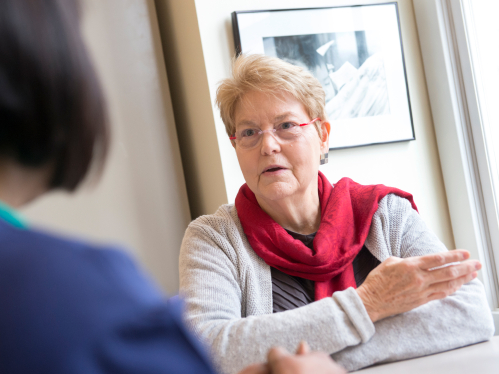
A Somber Milestone in the HIV/AIDS Epidemic
Perry N. Halkitis
Dean, Rutgers School of Public Health
He/him/his
This June we celebrate the 52nd anniversary of the Stonewall rebellion, which is commemorated as the onset of the LGBTQA civil rights movement. We also mark a more somber milestone: the 40th year since the first report of what was to become known as HIV/AIDS.
LGBTQA people and populations face unique health challenges that are fueled by social and structural conditions. Yet, we don’t know the true impact of many diseases on our population because most health care institutions, including many in our own state of New Jersey, fail to gather sexual orientation and gender identity (SOGI) data.
The excuse I am often given is that it will make people feel uncomfortable answering the question – a very clear indication of the homo- and transphobia in our society – the exception to our knowledge about the extent of disease in LGBTQA people and populations is HIV/AIDS.
Those of us who are Boomers or X-ers recall all too well this first report in the MMWR of five cases of pneumocystis pneumonia in young gay men in Los Angeles. A month later, 41 cases of Kaposi’s sarcoma, a form of cancer seen only previously in older individuals, was reported in both New York and California. I remember being an 18-year-old at the time, preparing to begin my first semester at Columbia University, still not open about my identity, and petrified at what I had been reading in The New York Times in an article by Lawrence Altman hidden on page A20 titled “Rare Cancer Seen in Homosexuals.”
Much has changed since 1981, including our advances in fighting this deadly virus. I underscore the word deadly because despite the pharmaceuticals to control HIV/AIDS through effective antiviral treatment, some 700,000 people died of AIDS complications in 2018, 15,280 of those in the United States. Moreover, 40,000 Americans, mostly gay, mostly Black, are newly infected each year. This last month, my very dear friend Steve succumbed to the ravages of the virus.
If we are to improve the health of LGBTQA people, we must enact systemic change led by activists, public health leaders and politicians working in concert. We must demand from our government equal protections under the law, we must demand health care providers are skilled fully to address our health burdens and recognize that as a population we are not monolithic, and we must end the harassment and discrimination that we experience in every corner of society, that underscores all aspects of our well-being.
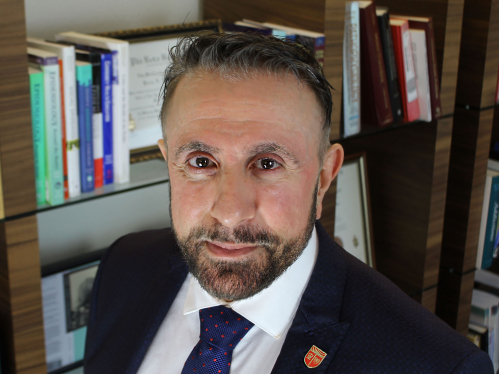
Celebrating Trans Literature
Catherine Fitzpatrick
Director of the Women’s and Gender Studies program
Rutgers University-Newark
Editrix of LittlePuss Press
She/her/hers
We are, as anyone paying attention knows, in a time of increasingly intense attacks, both on the legal rights of trans people (already this year, a record number of bills restricting trans rights have been proposed in U.S. state legislatures, and we’re only halfway through) and on the (nevertheless growing) cultural acceptance of the idea that being trans is okay. Transphobic rhetoric, moreover, comes not only from the usual suspects on the Christian and authoritarian right, but also from numerous cultural figures who claim to be liberals, feminists and even radical leftists.
In this context, it is important to note that we are also in a time of unprecedented flourishing of trans writing and cultural production. In particular, recent and forthcoming books by trans women are an incredible list. To mention only a few: Bishakh Som’s unsettling and beautiful graphic fiction collection Apsara Engine, Jeanne Thornton’s transcendent reimagining of the Beach Boys as trans, Summer Fun, Jackie Ess’s hilarious and probing novel of cuckoldry, Darryl, Ryka Aoki’s magical and secretly terrifying fantasy, Light From Uncommon Stars, Josie Giles’ propulsive Scots-language sci-fi verse epic Deep Wheel Orcadia, Casey Plett’s dreamlike, painfully realistic story collection A Dream of a Woman, Sybil Lamb’s possibly insane YA novel The Girl Who Was Convinced Beyond All Reason She Could Fly … just compiling this list, I am overwhelmed by joy and hope and, shameful word as it may be, pride.
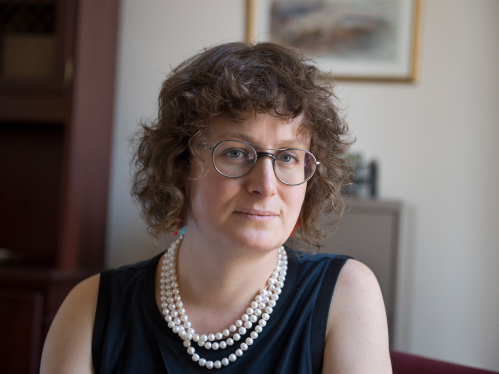



Coming out is not always easy or comfortable, or equally accessible to all of us, but it is worth doing when possible for the young person in the space, so they know they are not alone in their quest for other ways of being, for other ways of doing, and for other ways of living.
Carlos Ulises Decena
A Writer’s Reflections on Pride
Rigoberto González
Distinguished Professor of English
Director, MFA Program in Creative Writing, Rutgers University-Newark
He/him/his
At the beginning of Pride Month, I attended the virtual ceremony of the Lambda Literary Awards, the largest gathering of LGBTQA readers, editors, publishers, and writers to recognize the previous year’s outstanding books. The mood was celebratory, bursts of levity were followed by moments of inspiration as the winners offered heartfelt acceptance speeches and thanked those who offered support and, most importantly, love. We all seemed to be on the same wavelength, congratulating members of our community for doing their part in amplifying LGBTQA voices, experiences, and visibility.
Because we were virtual, I sensed there was an extra effort by the hundreds of viewers to flood the chat box with flower emojis, rainbows, and expressions of joy—exclamation marks a must. Indeed, we were all beginning to feel the relief of resurfacing after that lengthy pandemic shutdown. But returning to public life also meant coming back to the unsettling realities of violence and discrimination against the queer communities. The reminders were immediate by way of the anti-transgender sports bans gaining traction across the nation. The most recent one was signed into law on the day of the awards. June also marks the horrific anniversary of The Pulse gay nightclub shootings.
And yet, we LGBTQA writers were still able to write, to publish, and to connect with our beloved readers. It’s the creative impulse, but also a responsibility — a sentiment echoed by a number of writers that evening. We have an obligation to ourselves, to our communities, and to the youth who remind us of our younger selves when we were searching for those books that made us feel real, valued, and alive. Because, indeed, many of us survived our families, our schools, our towns and cities, and we have been tasked with sending out an important message: You are possible, you belong, you are loved for who you are.
This summer I turn 51. And I have spent much time reflecting on my writer’s journey. I have been blessed with a gift, but also with the time and resources to pursue my passion. And no matter how loud the hate and intolerance, my voice is always louder because I know more people are listening to me through my books. And I am part of a larger collective. We are undefeatable. We will not be silenced.
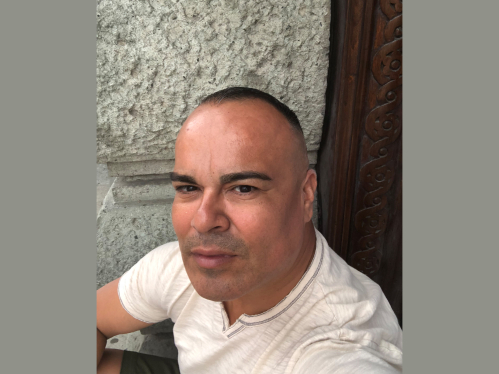
The Need for Greater Strides in the Workplace
Oscar Holmes IV
Associate Professor of Management, Rutgers University-Camden
He/him/his
My first time celebrating Pride was in the early 2000s when I was an undergraduate student. I fondly remember attending DC’s Black Pride with a few of my friends, which, pre-pandemic, was always over Memorial Day weekend, thus always a great kickoff for the official June Pride Month celebrations. Since then, I have attended my fair share of mainstream and Black Pride celebrations in various cities across the United States. In addition to the fun I had, it was always a powerfully affirming experience for me to be amongst throngs of people declaring that despite the oppression, ostracism, and discrimination we face, we would still publicly celebrate who we are and remind the public that we are not going away. For this, I am eternally grateful for LGBTQA pioneers like Marsha P. Johnson, Sylvia Rivera, James Baldwin, Bayard Rustin, Audre Lorde and so many others who fought for our freedom and blazed trails for other LGBTQA people like me to live better lives.
I am very appreciative of how far we’ve come, but I do not believe sufficient progress has been made toward workplace inclusion for LGBTQA communities. First, hate crimes targeted toward LGBTQA people, particularly against transgender women of color, still exist at alarming rates. Second, secure employment, leadership, political, and wealth attainment for LGBTQA people is still far lower than it should be. Third, discriminatory LGBTQA laws and practices still exist that adversely impact the lives of LGBTQA people, especially as it relates to romantic and parenting partnerships. Finally, health care and social inequities are quite prevalent, specifically with respect to the HIV epidemic, mental health, and other social services. These issues should matter to everyone because everyone deserves to live a life free of impediments originating solely because of who they are. As Emma Lazarus reminded us in the 1800s, “Until we are all free, none of us are free.”
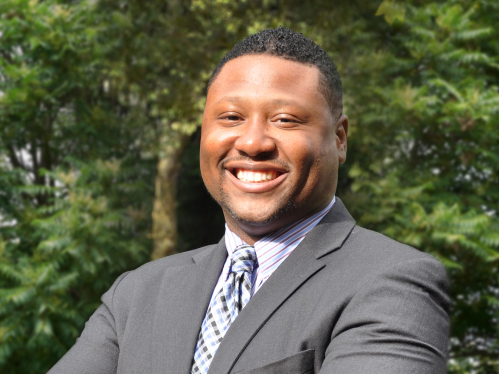
Turning Rainbow Capitalism Into Action
Arturo E. Osorio
Associate Professor of Professional Practice
Rutgers Business School-Newark and New Brunswick
He/his/him/el
“I got my civil rights!” was Marsha P. Johnson’s cry that sparked the June 28, 1969, Stonewall’s protests. This moment was not the start of the LGBTQA movement. Yet, the power and extent of this event helped to catapult the US-LGBTQA movement to a new high.
Rainbow Capitalism is the integration of the LGBTQA movement and its agenda into “mainstream” capitalism. This is mostly focused on Western, white middle upper-class LGBTQA communities. Companies often celebrate Pride Month as a branded holiday with pride merchandise and decorations.
While the branding brings awareness and puts the spotlight on the LGBTQA community and allies, it has been criticized for its commercial focus akin to the “pinkwashing” of Breast Cancer Awareness. The focus is on commercialized support that often becomes empty of concrete actions. In some extreme cases, this has backfired to companies who may support political agendas curtailing the rights of the LGBTQA community and/or follow internal discriminatory policies and practices yet make big public statements in support of the LGBTQA community during Pride Month. Further, when companies create donation campaigns linked to pride merchandise it fosters what is called “slacktivism.” Slacktivism is the practice of supporting a political or social cause, like LGBTQA rights, involving very little effort or commitment (e.g., “likes” on social media, donations through purchases), thus creating very little, if any, advancement of the agenda.
Pride celebrations mark years of work towards acceptance and equality. Branding brings awareness and focuses on the LGBTQA people and allies and their ongoing civil rights fight. Yet, while there have been gains, there are still ways to go. Financial planning, human resources protections, and family benefits are just some of the spaces that are still to be won. As an ally to the LGBTQA community, I am one of the LGBTQA Safe Zone liaisons at Rutgers Business School (RBS). I have also been the academic adviser for the RBS MBA Pride Club and the link between the Newark Pride organization and RBS. Our students and the LGBTQA community at large are aware of these challenges and are eager to see action and progress, something more than a click of support.
Let’s cancel Pride woke washing for them and for us. Let’s make rainbow capitalism about awareness, activism, and action.
